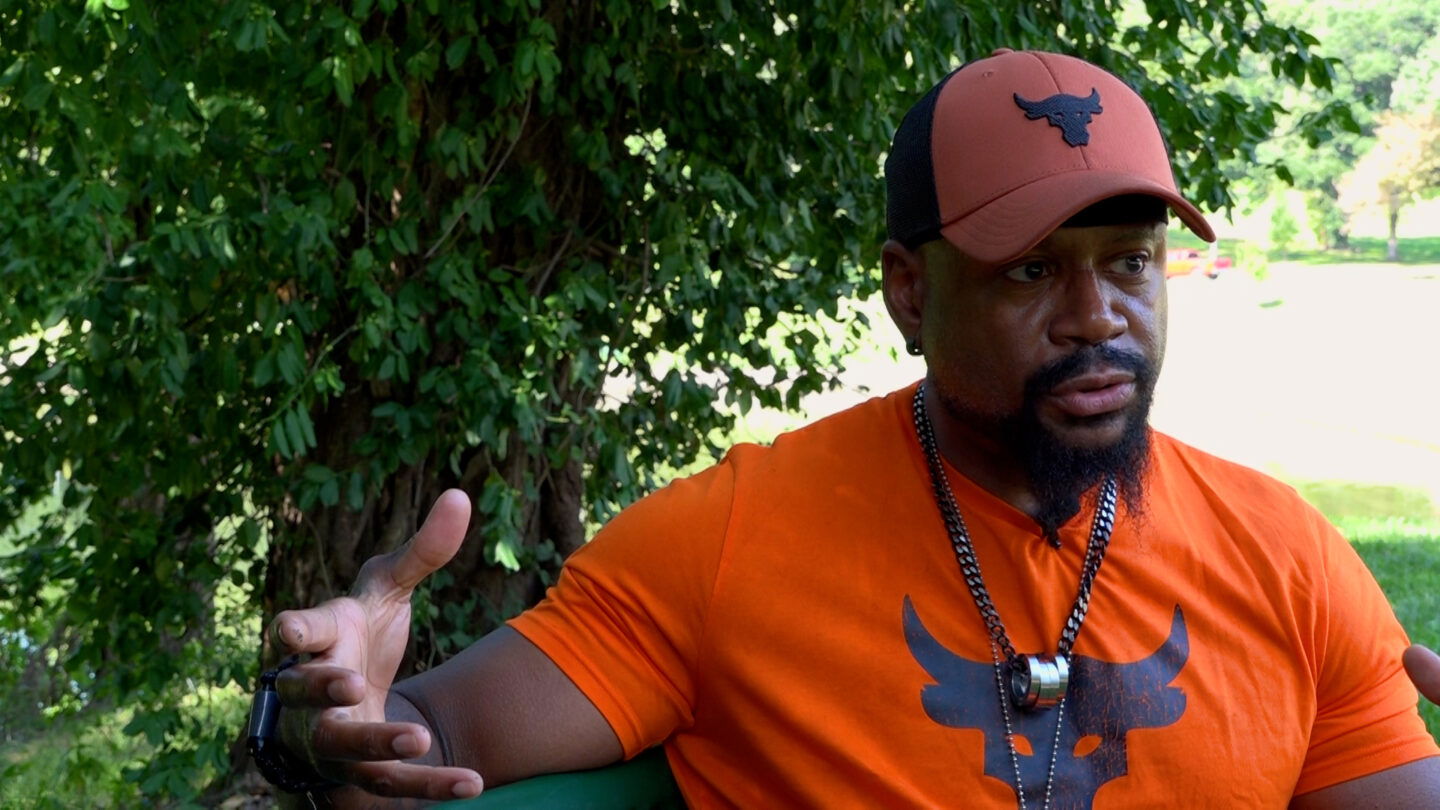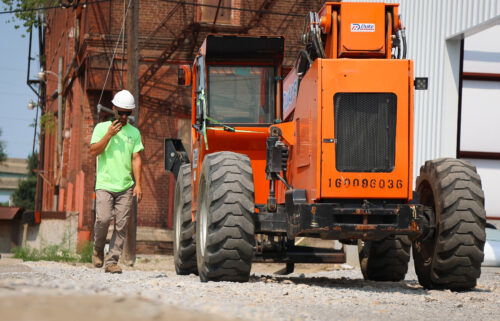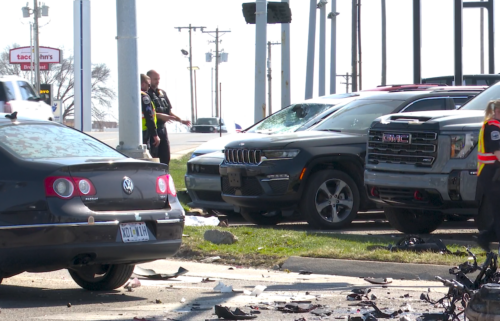Local residents reflect on the impact of 9/11 decades later

By Chris Fortune
Archie Randolph Jr. was working road construction, applying thermoplastic on K-5 Highway in Kansas when one of his coworkers sitting in an attenuator truck honked his horn to get everyone’s attention. A plane had crashed into the World Trade Center.
“I thought he meant somebody flew in between them, and he said, ‘No, into the building,” Randolph said. “Then traffic got real crazy. I see a lot of police and highway patrol go by.”
Across the country, people began to comprehend the massive scale of the attacks on Sept. 11, 2001. The effects of that day continue to be felt today with additional screenings at airports or when TSA pulls someone aside for a random security check.
Likely anyone who is old enough to remember the attacks could recall what they were doing at the exact time they heard the news.
“I was sad, I was upset, I was mad”
Randolph remembers trying to stop at a gas station for fuel, but there were lines wrapped around each one he passed. On the trip home to St. Joseph, he passed Kansas City International Airport.
“It was locked down tight,” he said. “I’ve never seen so many cop cars all over the place.”
When he arrived at his apartment, he watched the news all night.
“I was sad, I was upset, I was mad,” he said. “I was like, ‘Why did this happen? Why would somebody do that?’”
Randolph had an extra reason to be concerned about the news. At that time he served with the Air National Guard and knew it was likely he’d get the call to be activated for duty, something that happened in the following months.
“In February 2002, they called me and said, ‘You’re activated,’” he said. “I went to work for security forces — Air Force police doing security around Rosecrans Air National Guard base.”
In 2005, Randolph was deployed to Iraq for 181 days, and in 2009 and 2010 he spent 310 days in Jalalabad, Afghanistan. Each year when 9/11 comes around, he reflects on his journey.
“You should be thankful for the country you live in,” he said. “We have problems, every country has problems, there’s no perfect country on this planet, but the United States is a good country.”
Keeping a loved one’s memories alive
Joe Marmaud was born in Brooklyn, New York, and moved to St. Joseph in the early 1990s when he was about 10 years old. He lost his godmother who was working in one of the World Trade Center towers on 9/11.
Donna Wilson, known affectionately as Aunt Donna, worked in the South Tower and was the best friend of Marmaud’s mother. Wilson was her maid of honor and was always present in Marmaud and his siblings’ lives.
“She was just always kind of around for us kids,” Marmaud said. “Every time there was a confirmation, communion, celebration, birthday, whatever it was, she was always there.”
One of his last memories of Wilson was at his brother’s graduation party in June of 2001. Marmaud said Wilson didn’t cook very often, but she insisted on helping with that duty at his brother’s party.
“Sometimes you can look back and say maybe they knew that would be the last time they see us or something like that,” he said. “It was just something that sticks out in my head is that she helped cook the meal and everything, which she never usually did.”
Marmaud calls 9/11 a defining moment in American history, which he said feels weird to put in that perspective.
“After 20 years, that’s what it is now, it’s history,” he said. “You have a few of them in life, like the Kennedy assassination or the bombing of Pearl Harbor. You can definitively say there was a before 9/11 and after 9/11, and it’s important to keep the memory of these people alive.”
Impact on today’s world
Randolph said one of the most glaring differences in the United States after 9/11 is increased security at airports.
“Before, you could take pretty much anything on an airplane except for a gun,” he said. “I used to take a little bitty pocketknife. You can’t even take 3 ounces of liquid on there now.”
Marmaud remembers how the country came together in the days after 9/11 and how American flags were sold out at most stores.
“In the days after 9/11, everyone was just Americans and I remember that really well, like there was no Republican and Democrat,” he said. “It was America.”
Marmaud said the attacks showed how quickly events can change the world. It’s one reason why he said he believes 9/11 should be covered more in schools, noting kids in grade and high schools, along with many college students had not been born yet when the tragedy happened.
“They should just know that it was one of those events that defined not just a day, a week, a month, but defined an entire era,” he said.



